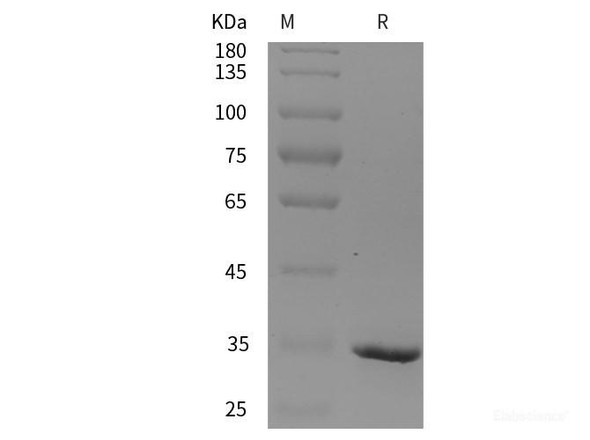| Sequence: | Glu 21-Lys 457 |
| Accession: | D4A3X8 |
| Storage: | Generally, lyophilized proteins are stable for up to 12 months when stored at -20 to -80°C. Reconstituted protein solution can be stored at 4-8°C for 2-7 days. Aliquots of reconstituted samples are stable at < -20°C for 3 months. |
| Shipping: | This product is provided as lyophilized powder which is shipped with ice packs. |
| Formulation: | Lyophilized from sterile PBS, pH 7.4. Normally 5 % - 8 % trehalose, mannitol and 0.01% Tween80 are added as protectants before lyophilization. Please refer to the specific buffer information in the printed manual. |
| Reconstitution: | Please refer to the printed manual for detailed information. |
| Background: | Interleukin 7 Receptor alpha (IL-7RA), also known as CD127, is a 75 kDa hematopoietin receptor superfamily member that plays an important role in lymphocyte differentiation, proliferation, and survival. IL-7RA signaling is essential for T-cell development and regulation of naive and memory T-cell homeostasis. Studies from both pathogenic and controlled HIV infection indicate that the containment of immune activation and preservation of CD127 expression are critical to the stability of CD4(+) T cells in infection. A better understanding of the factors regulating CD127 expression in HIV disease, particularly on T(CM) cells, might unveil new approaches exploiting the IL-7/IL-7R receptor pathway to restore T cell homeostasis and promote immune reconstitution in HIV infection. Factors relevant to HIV infection that could potentially decrease CD127 expression on human CD8(+) T cells. CD127 down-regulation may be an important contributor to HIV-associated T-cell dysfunction. In addition to IL-7, IL-7RA also associates with TSLPR to form the functional receptor for thymic stromal lymphopoietin (TSLP) which indirectly regulates T cell development by modulating dendritic cell activation. Mutations in the human IL-7RA gene cause a type of severe combined immunodeficiency in which the major deficiencies are in T cell development, whereas B and NK cells are relatively normal in number. Soluble CD127 (sCD127) appears to play an important role in the immunopathogenesis of several chronic infections, multiple sclerosis, and various cancers. |










